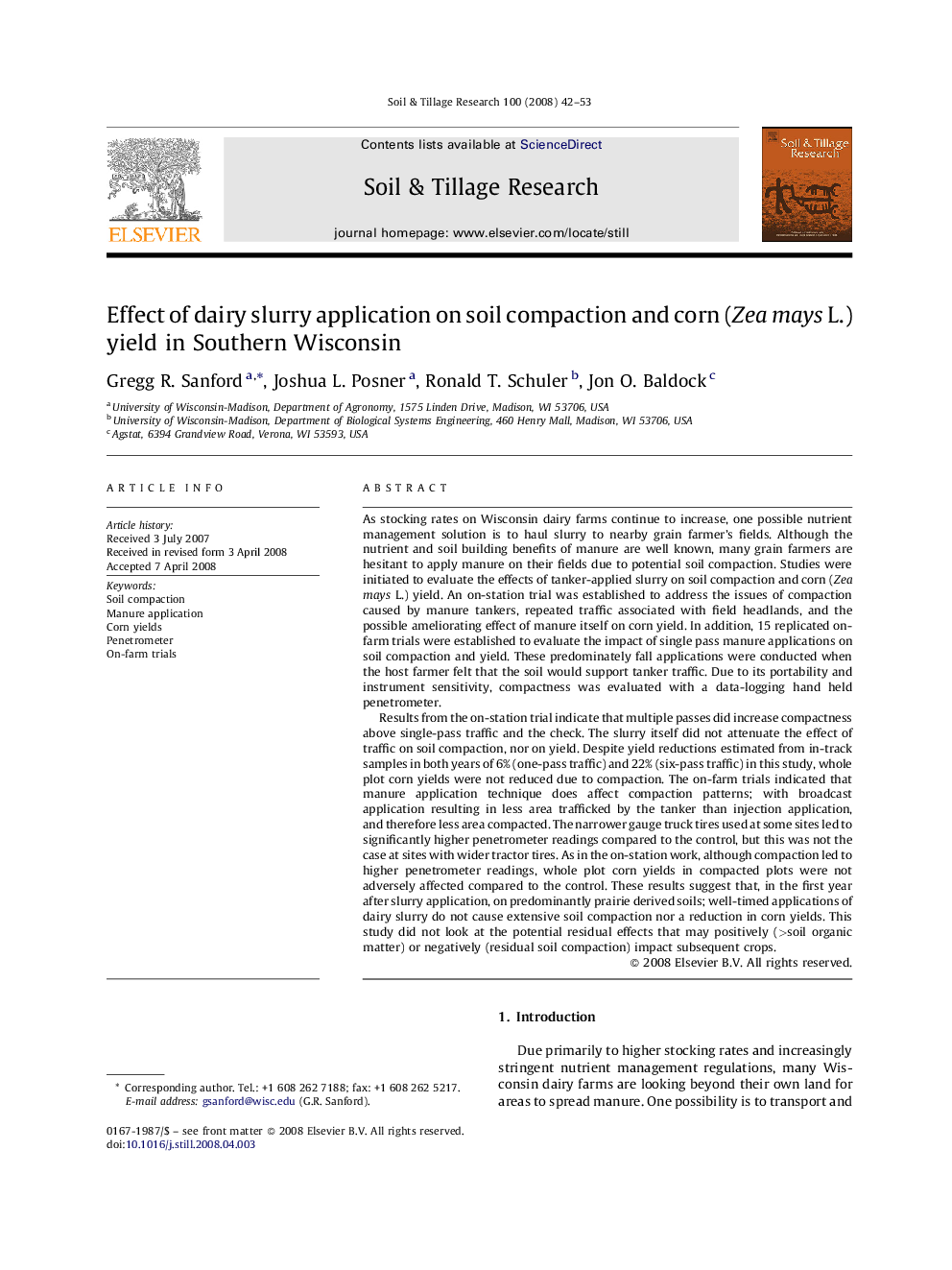| Article ID | Journal | Published Year | Pages | File Type |
|---|---|---|---|---|
| 306471 | Soil and Tillage Research | 2008 | 12 Pages |
As stocking rates on Wisconsin dairy farms continue to increase, one possible nutrient management solution is to haul slurry to nearby grain farmer's fields. Although the nutrient and soil building benefits of manure are well known, many grain farmers are hesitant to apply manure on their fields due to potential soil compaction. Studies were initiated to evaluate the effects of tanker-applied slurry on soil compaction and corn (Zea mays L.) yield. An on-station trial was established to address the issues of compaction caused by manure tankers, repeated traffic associated with field headlands, and the possible ameliorating effect of manure itself on corn yield. In addition, 15 replicated on-farm trials were established to evaluate the impact of single pass manure applications on soil compaction and yield. These predominately fall applications were conducted when the host farmer felt that the soil would support tanker traffic. Due to its portability and instrument sensitivity, compactness was evaluated with a data-logging hand held penetrometer.Results from the on-station trial indicate that multiple passes did increase compactness above single-pass traffic and the check. The slurry itself did not attenuate the effect of traffic on soil compaction, nor on yield. Despite yield reductions estimated from in-track samples in both years of 6% (one-pass traffic) and 22% (six-pass traffic) in this study, whole plot corn yields were not reduced due to compaction. The on-farm trials indicated that manure application technique does affect compaction patterns; with broadcast application resulting in less area trafficked by the tanker than injection application, and therefore less area compacted. The narrower gauge truck tires used at some sites led to significantly higher penetrometer readings compared to the control, but this was not the case at sites with wider tractor tires. As in the on-station work, although compaction led to higher penetrometer readings, whole plot corn yields in compacted plots were not adversely affected compared to the control. These results suggest that, in the first year after slurry application, on predominantly prairie derived soils; well-timed applications of dairy slurry do not cause extensive soil compaction nor a reduction in corn yields. This study did not look at the potential residual effects that may positively (>soil organic matter) or negatively (residual soil compaction) impact subsequent crops.
